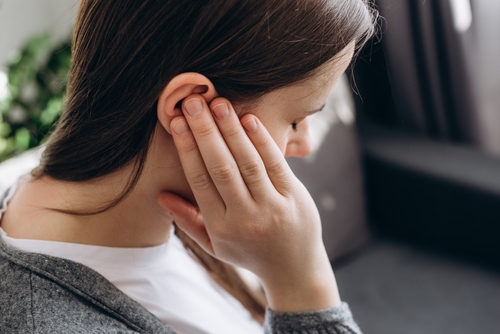Home
/
Symptoms
/
Ringing, Buzzing, or Hissing in the Ear (Tinnitus): Causes, Diagnosis & Treatment
At Emirates Hospital, we understand that ringing, buzzing, or hissing in the ear—also known as tinnitus—can be bothersome and affect daily life. Tinnitus is often a symptom of an underlying condition, such as hearing loss, ear infections, or circulatory issues. Identifying the cause is essential for effective management and relief.
Causes of Ringing, Buzzing, or Hissing in the Ear (Tinnitus)
Tinnitus can result from various auditory, neurological, or vascular conditions. Understanding the underlying cause helps determine the most effective treatment.
- Age-Related Hearing Loss (Presbycusis): The natural aging process can cause inner ear damage, leading to tinnitus.
- Exposure to Loud Noises: Prolonged exposure to loud music, machinery, or gunshots can damage the cochlea (inner ear), resulting in persistent ringing.
- Earwax Blockage: Excessive earwax buildup can affect sound perception, causing a buzzing or hissing sensation.
- Ear Infections & Eustachian Tube Dysfunction: Fluid buildup or middle ear infections can create a whooshing or pulsating noise in the ear.
- Temporomandibular Joint (TMJ) Disorders: Jaw misalignment or TMJ dysfunction can contribute to ear discomfort and tinnitus.
- Circulatory Problems & High Blood Pressure: Conditions like hypertension, atherosclerosis, or vascular malformations can cause pulsatile tinnitus, where the sound matches the heartbeat.
- Neurological Disorders (Meniere’s Disease & Acoustic Neuroma): Certain conditions affecting the inner ear or auditory nerves can trigger chronic tinnitus.
- Medication Side Effects: Some antibiotics, diuretics, antidepressants, or high-dose aspirin can cause tinnitus as a side effect.
Diagnosis of Ringing, Buzzing, or Hissing in the Ear (Tinnitus)
A thorough evaluation helps determine the cause and severity of tinnitus and guides appropriate treatment.
- Hearing Tests (Audiometry): Assesses hearing function and frequency of the ringing.
- Physical & Ear Examination: Identifies earwax buildup, infections, or TMJ issues.
- Imaging Tests (MRI, CT Scan): Detects vascular or neurological causes of tinnitus.
- Blood Tests: Checks for thyroid issues, anemia, or circulatory problems that may contribute to tinnitus.
Treatment for Ringing, Buzzing, or Hissing in the Ear (Tinnitus)
Treatment depends on the underlying cause and focuses on symptom relief and improving ear health.
- Hearing aids and sound therapy help mask tinnitus and improve hearing function.
- Medications and lifestyle modifications manage circulatory issues and reduce noise perception.
- Earwax removal and infection treatment restore normal ear function and alleviate symptoms.
- Stress reduction and cognitive behavioral therapy (CBT) help manage the emotional impact of tinnitus.
Related Treatments



